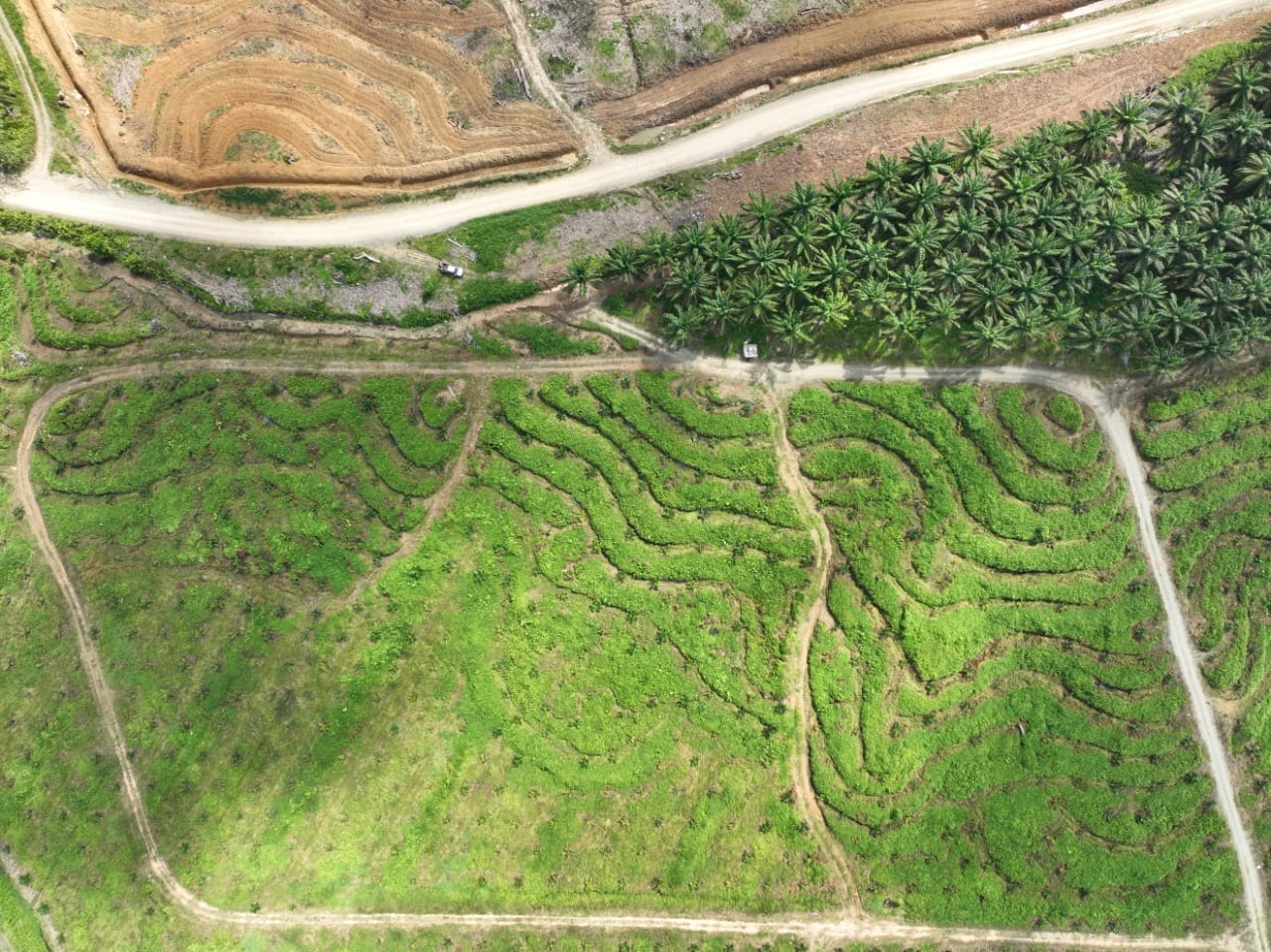The Lower Kinabatangan in Sabah, Malaysian Borneo, is home to one of the world’s last populations of Bornean elephants, but habitat fragmentation and human-elephant conflict threaten their survival. With oil palm plantations covering much of the landscape, there is an urgent need for coexistence strategies that integrate conservation with sustainable land use. Farina and her team will take a landscape approach to elephant conservation.
THE LAST STRONGHOLD
Sabah, a state in Malaysian Borneo, is the last remaining stronghold of the Endangered Bornean elephant – a subspecies of Asian elephant – with fewer than 1,500 individuals left in the wild. The Lower Kinabatangan, where a small population of 250 elephants survives, is in the east coast of the state and covers 400km². About 90% of the original forest in this region has been converted to oil palm plantations, which are the current mainstay of the local economy, and occur on both large estates and small farms. The oil palm landscapes cut through a fragmented network of protected forests and overlap with vital elephant habitat and corridors.
HUMAN-ELEPHANT CONFLICT
When elephants move through plantations, farmers can see them as a threat to their crops and can take defensive action. Farina and the team at NGO Seratu Aatai are working with oil palm companies to develop guidelines and monitoring plans that address habitat connectivity, fencing, human-elephant interactions, and sustainable management practices. With safe corridors and secure habitats, elephants can move freely with minimal risk of property damage, injuries and fatalities for both people and elephants. This project comes at a critical time when Sabah is working toward achieving Roundtable on Sustainable Palm Oil (RSPO) certification for all plantations, and stakeholders are increasingly committed to adopting sustainable practices.
A SHARED LANDSCAPE
Farina and her team believe that peaceful coexistence is possible, and they aim to demonstrate that conservation and economic viability can go hand in hand. Regulatory support, policy incentives, and continued collaboration across the public, private, and NGO sectors are needed to overcome barriers such as economic concerns and to support lasting changes. Raising awareness is particularly central to their mission. By engaging plantation schools and training Honorary Wildlife Wardens, they equip local communities with the knowledge and means to safely interact with elephants and mitigate conflicts. Through education, collaboration, and policy integration, they are shaping a future where both elephants and people can thrive in Kinabatangan’s shared landscapes.
WITH THE WHITLEY AWARD, FARINA AND HER TEAM WILL:
- Formulate guidance and best practices to help palm oil plantations support elephant conservation and mitigate human-elephant conflict
- Empower plantation personnel to monitor elephants, deepening understanding of their movements and behaviour
- Share knowledge between large plantations and smallholders, such as effective fertilisation methods, pest control, and ways to reduce habitat degradation
- Raise awareness in schools to promote safe interaction with elephants
- Train and support people from local communities to act as Honorary Wildlife Wardens
TOP FACTS:
- Lower Kinabatangan floodplain is a diverse and vital ecosystem also home to orangutans, clouded leopards and sun bears.
- While Bornean elephants are smaller than African elephants, they are the largest mammal on Borneo.
- 11 large oil palm companies own 40% of land in Lower Kinabatangan.
Image credits: Cede Prudente (Herd of Elephants)



